Blog
The ‘One More Integration’ Trap: Why Great PMs don't fall for it.
Never ending hassle of managing integrations and expectations with a conventional onramp solution.
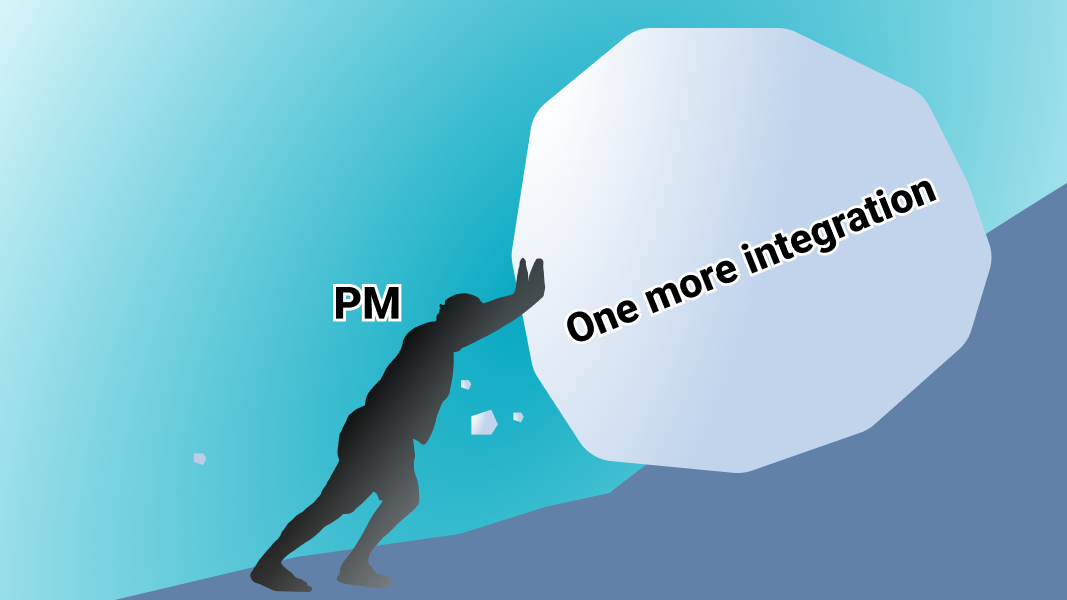
You may have been there before. Your team’s focus suddenly shifts to a new country or new on-ramp, a new payment method or UI improvement.
You look at the current product and think, “We just need one more feature, one more integration, and we’ll be done.” So you allocate resources from a dev team that has heard this one before, and push through.
But a few months later, the same conversation happens again. Maybe a new market needs a specific payment method. Compliance requirements shift. User expectations evolve. And suddenly, you’re back to square one, convincing yourself that just one more feature will finally complete the puzzle.
It never does.
You end up in an endless cycle of incremental decisions, each one adding complexity, maintenance, and opportunity cost.
Meanwhile, you are constantly fighting for resources internally, and as time passes you realise you are constantly falling behind on the latest developments. For your onramp stack, you’re lacking smart routing, low-KYC options, DCA, and whatever else the latest craze is.
The sunk cost fallacy in product management
Why does this happen?
In the past, decisions have been made to build, rather than outsource. Time, money, and engineering effort has been spent into building something, and now it’s hard to stop. The logic goes:
"We’ve already integrated three, four, or even five on-ramps. We’ve done so much work—why not just add one more instead of rethinking our approach?"
This is the sunk cost fallacy in action.
Each new integration feels like a small step forward, but in reality, it’s a growing web of maintenance, dependencies, and technical debt. Every time you choose to build instead of leveraging an existing solution, you’re committing your team to ongoing upkeep, often at the cost of innovation elsewhere.
Meanwhile, your competitors, who aren't stuck in this cycle, are shipping faster and capturing more market share.
The true cost of “one more feature”
Saying yes to another feature or integration might seem like the logical choice, but it comes at a cost:
💸 Mounting maintenance – More integrations = more code to maintain, more bugs to fix, and more time spent on infrastructure instead of product innovation.
⏳ Opportunity costs – Every hour spent integrating another on-ramp is an hour not spent on features that actually differentiate your product.
🔄 Vicious cycle – The next request is always around the corner. Today it’s an on-ramp for Brazil. Tomorrow, it’s Venmo. Then a better KYC process. The cycle repeats indefinitely.
At some point you have to ask: Are we moving forward, or just running in circles while others pass us by?
Breaking the cycle with smart decision-making
The good news is you don’t have to keep making the same decision.
Instead of constantly adding one more integration, Onramper removes blockers and future-proofs your payments infrastructure.
And let’s clear up a few common misconceptions:
🚫 "But Onramper locks us in!" → No, you can still negotiate your own deals with on-ramps and stay in control of commercial terms.
🚫 "But we’d have to replace our existing stack!" → Nope. Onramper can complement your current setup, so you don’t have to rip anything out.
🚫 "But pricing will be worse!" → Nope. Onramper doesn’t add fees on onramps’ pricing. Your pricing will actually improve due to more competition and fee transparency, while your conversion skyrockets due to smarter routing.
Instead of adding one-off integrations every few months, Onramper gives you a scalable, adaptable solution that evolves with your needs—without the constant firefighting.
Taking the smarter path
Product management is about making trade-offs. But the best PMs don’t just optimize for today—they optimize for velocity, ensuring that every decision makes future decisions easier.
The next time you find yourself saying "just one more feature," take a step back.
Are you really solving the problem with another integration? Or are you adding onto the real problem?
The best PMs are those who are not afraid to learn from the past. Those who break free from it. In this light - It’s great to see more and more leading exchanges and wallets like Exodus, Gate.io and Bitget break the endless cycle with Onramper - so they never have to do 'one more integration'.
Join the movement - stop getting trapped in an endless cycle. Talk to us today.
Other articles
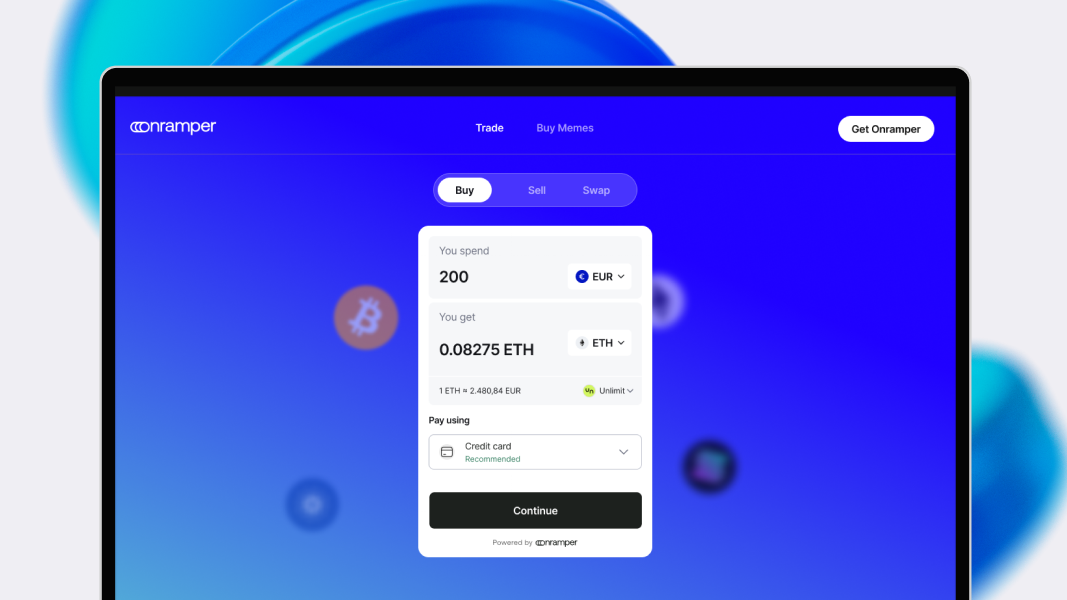
Introducing our new crypto trading portal: the easiest way to buy, sell and swap
Buying crypto should be simple. Selling and swapping should feel just as easy. That’s why we’re leveling up the Onramper experience to make this a reality.
Meet our new crypto portal, the world’s simplest all-in-one trading platform. It brings buying, selling and swapping together in one place with the best available fees and full global coverage.
One place for everything
It’s easy for trading flows to feel scattered, with buying, swapping and selling all living in different places. We set out to fix that..
Our portal brings everything together so the entire journey stays clear and straightforward from start to finish. You can now:
- Buy crypto with 170+ payment methods
- Sell back to fiat
- Swap 100K+ assets across 50+ networks, with 11+ liquidity providers
All from one clean, intuitive interface.
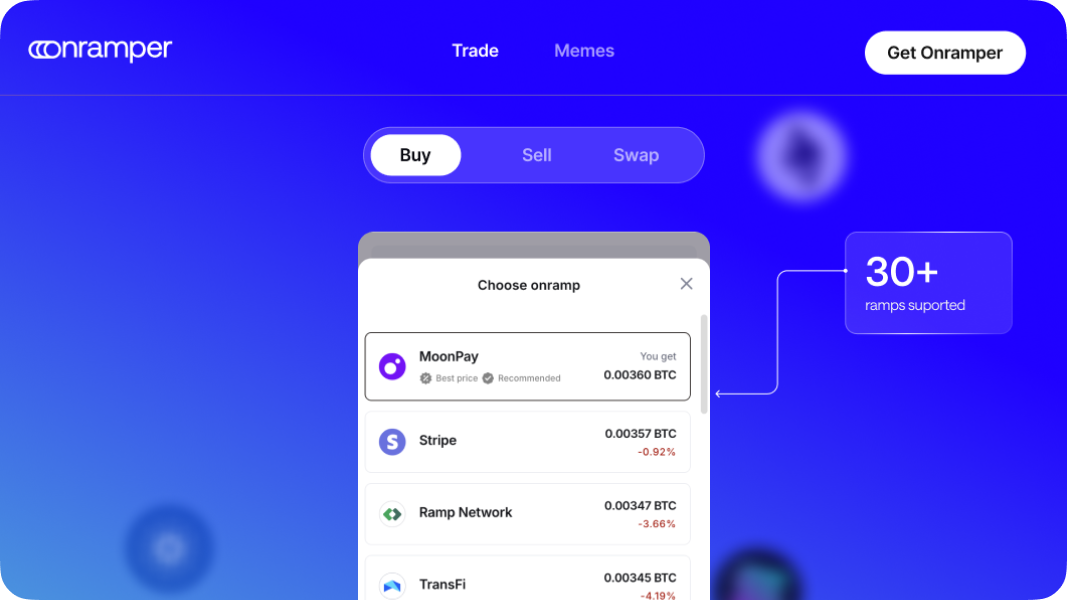
Always the best fees, automatically
Crypto pricing moves fast, with fees constantly shifting based on payment method, geography, KYC requirements and liquidity. Our smart routing engine tracks all of it in real time and selects the best provider automatically.
We do the work, and you get the best fees with the highest chance of transaction success.
Any payment method. Any user.
A global product requires global payment coverage. The new portal supports 175+ payment methods including cards, Apple Pay, Google Pay, bank transfers, regional options and alternative methods found in high-growth markets.
Since payment preferences vary by region, the interface automatically highlights the options that perform best in your area. This keeps the experience fast, familiar and easy for any user, anywhere.
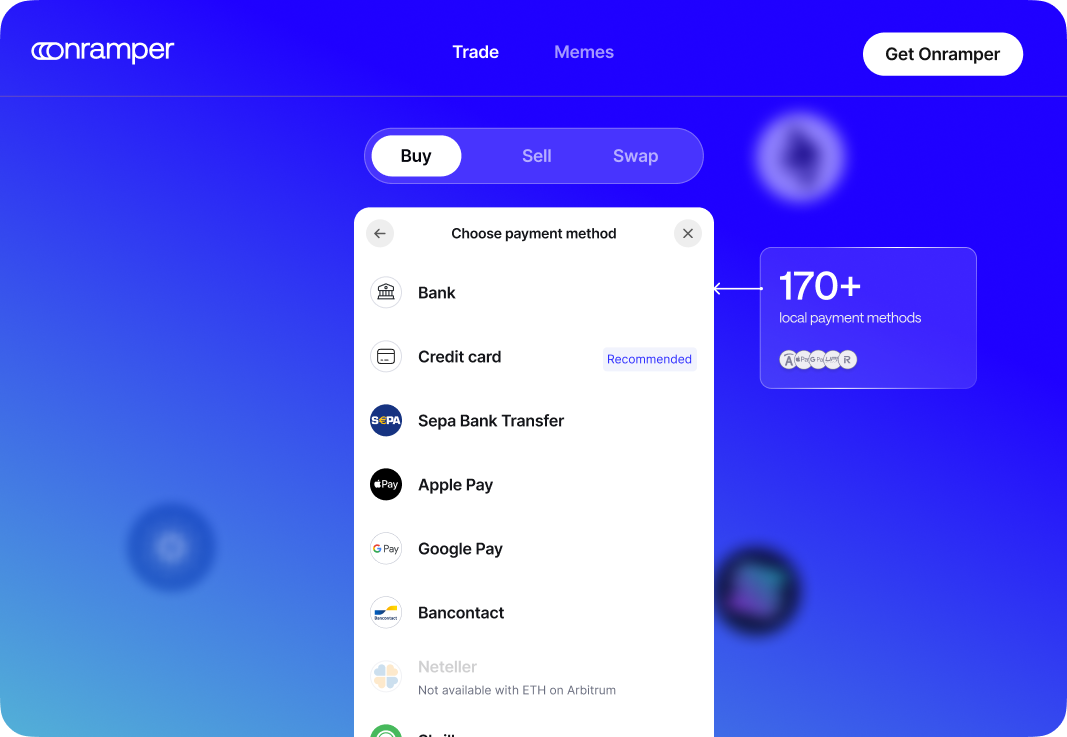
Buy any memecoin on Solana with MoonGate
The rise of memecoins has changed what’s expected from a trading experience. People want speed, simplicity and access to the long tail of new tokens.
By integrating MoonGate directly into the portal, we deliver exactly that. You can:
- Sign in with Google or Apple to generate a wallet instantly
- Discover trending Solana tokens
- Buy or swap into any memecoin in seconds
No separate setup and no manual wallet creation. Just instant access.
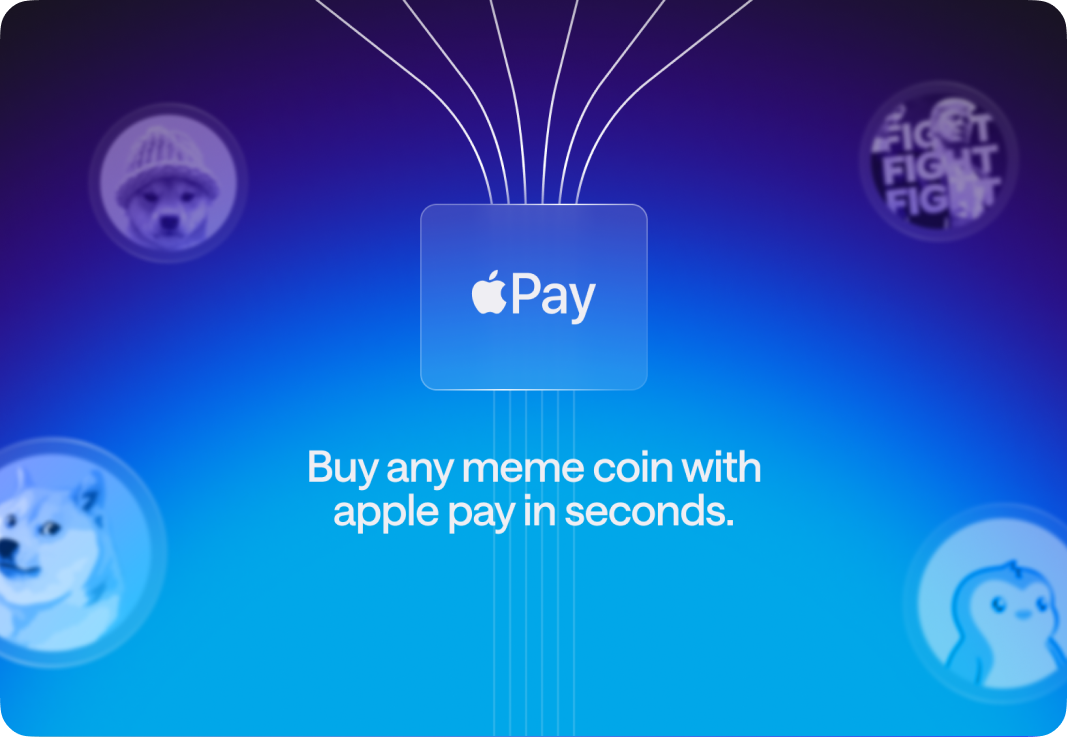
This is just the beginning
This portal isn’t an add-on. It’s a dedicated page built around a single widget that supports every trade type in one unified experience. And it’s only the first version.
We’ll continue adding new features that streamline the entire trading journey. From smarter token discovery to personalized payment suggestions, our goal is to create the smoothest crypto trading experience possible.
Try the full experience here: https://onramper.webflow.io/buy
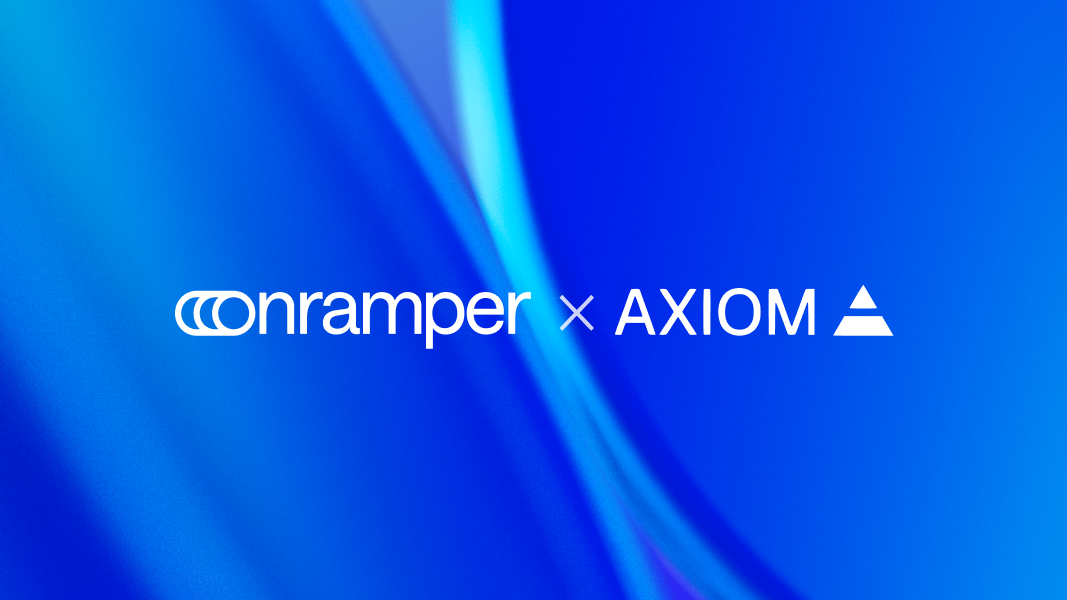
Axiom Partners with Onramper to Power Seamless DeFi Trading
With Onramper, Axiom users around the world can top up BNB and SOL with 130+ payment methods including Apple Pay and Venmo.
AMSTERDAM, December 4, 2025 – Onramper, the world’s leading fiat-to-crypto onramp aggregator, announced a partnership with Axiom, the Y Combinator-backed Solana-based trading platform, to deliver one of the fastest and most seamless trading experiences in DeFi. Through this integration, Axiom users worldwide can instantly top up BNB and SOL using more than 130 payment methods, including Apple Pay, Google Pay, Venmo, debit and credit cards, and localized options across 190 countries.
Axiom has quickly become one of the top trading platforms in the Solana ecosystem, offering access to memecoins, perpetuals, and yield strategies. In October 2025, the platform made history as the fastest crypto company to reach $300 million in revenue. Through its collaboration with Onramper, Axiom is offering users a simple, fast way to onboard and begin trading on Solana.
“Our job is to simplify the way users move from fiat into crypto,” said Thijs Maas, CEO of Onramper. “By offering a wide range of trusted, localized payment options, we ensure that users can onboard quickly and compliantly. We’re thrilled to support Axiom as they scale the next generation of DeFi on Solana.”
Onramper’s network supports more than 130 payment methods and enables crypto purchases across 190+ countries. Its routing engine recommends the best available conversion in real-time, maximizing the chances of a successful transaction and helping users receive the most crypto for their fiat.
“We’re delivering an onchain trading experience that is fast, global, and intuitive,” said Henry Zhang, Co-Founder and CEO of Axiom. “Integrating Onramper strengthens that experience by giving users a reliable way to move from fiat to crypto and access onchain liquidity.”
Onramper continues to lead the onramp aggregation space, connecting more than 30 global fiat gateways and supporting over 2,000 digital assets, driving greater accessibility and inclusivity across Web3.
To learn more, please visit onramper.com and axiom.trade.
About Onramper
Onramper is the leading fiat-to-crypto payments aggregator, providing a turnkey API-based solution for dynamically routing fiat-to-crypto onramp flows based on algorithms optimizing for conversion, fees and payment methods. Onramper’s platform allows users of clients to buy 2000+ digital assets, in over 190 countries with over 130 payment methods in 120 currencies, with advanced routing options and unified analytics. The company is based in the Netherlands. To learn more about Onramper, visit www.onramper.com.
About Axiom
Axiom is a trading platform designed to be the only application you need to trade onchain. It offers a suite of integrations that allow users to trade the hottest assets, all in one place.
For media enquiries, contact:
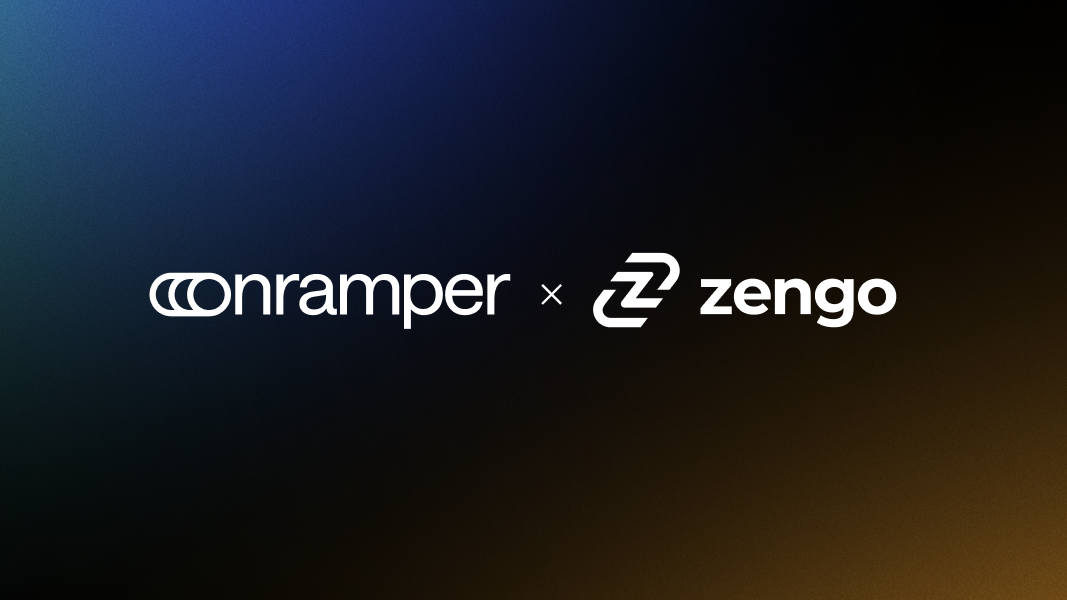
Zengo Enters Partnership with Onramper to Unlock Global Crypto Access
Collaboration will power 130+ payment methods across LATAM, SEA, Africa, and more, simplifying fiat-to-crypto onboarding worldwide
AMSTERDAM, Nov. 5, 2025 /PRNewswire/ -- Onramper, the world’s leading fiat-to-crypto onramp aggregator, today announced a partnership with Zengo Wallet, the most secure self-custodial crypto wallet trusted by millions, to expand global payment access for users.
Through this collaboration, Zengo users can now buy crypto through Onramper at the most competitive fees available, starting at just 2% for Zengo Pro users. The integration supports more than 130 local payment methods, streamlining purchases across key markets in Latin America, Southeast Asia, and Africa.
The partnership also enables a seamless onboarding flow for first-time users, while returning users are automatically directed back to their preferred payment providers–delivering a faster, more intuitive, and personalized experience.
“Access to crypto should not depend on where you live or which payment method you use,” said Thijs Maas, CEO of Onramper. “By partnering with Zengo, we’re removing the barriers that have limited participation in Web3, especially in regions with high demand but limited infrastructure. Together, we are making it easier for anyone, anywhere, to enter the crypto economy safely and efficiently.”
This partnership reinforces Zengo’s mission to make crypto ownership simple and secure, particularly in emerging markets where local payment coverage is key to adoption. By integrating Onramper’s technology, Zengo users will enjoy smoother onboarding, lower fees, and a more consistent purchasing experience, whether they are new or returning customers.
“At Zengo, our goal is to provide secure and low-cost access to any type of digital asset for individuals and businesses,” said Ouriel Ohayon, co-founder and CEO of Zengo. “Through our partnership with Onramper, we’re expanding global access to crypto and stablecoins with a faster, cheaper, and wider selection of payment methods anywhere, anytime.”
Integrating local payment methods across multiple regions has long been a complex and resource-heavy process for crypto platforms. Onramper’s aggregation technology removes this barrier by unifying both global and local onramps within a single API, giving partners instant access to the world’s most comprehensive fiat-to-crypto infrastructure.
Onramper continues to lead the onramp aggregation space, connecting more than 30 global fiat gateways and supporting over 2,000 digital assets in more than 190 countries, driving greater accessibility and inclusivity across Web3.
To learn more, please visit onramper.com and zengo.com.
About Onramper
Onramper is the leading fiat-to-crypto payments aggregator, providing a turnkey API-based solution for dynamically routing fiat-to-crypto onramp flows based on algorithms optimizing for conversion, fees and payment methods. Onramper’s platform allows users of clients to buy 2000+ digital assets, in over 190 countries with over 130 payment methods in 120 currencies, with advanced routing options and unified analytics. The company is based in the Netherlands. To learn more about Onramper, visit www.onramper.com.
About Zengo Wallet
Zengo Wallet is the most secure self-custodial crypto wallet, trusted by over 2 million individuals and businesses in 180+ countries. Since 2018, no Zengo wallet has ever been hacked. Zengo Pro includes advanced features like Bitcoin Vaults, an inheritance-style feature, and now, heavily discounted fees on purchase. Powered by MPC cryptography, Zengo has no seed phrase vulnerability and is backed by Insight Partners, Tether, and other leading investors.
For media enquiries, contact:



















